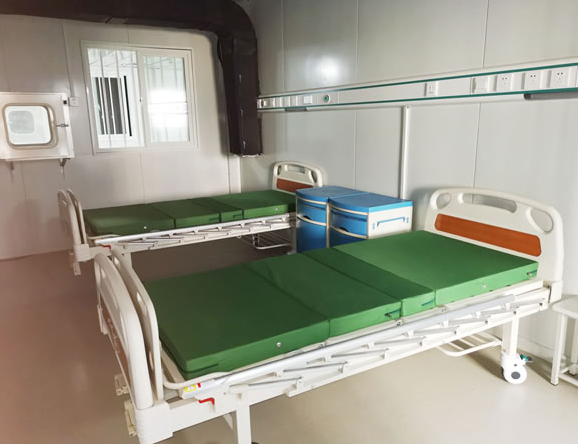Container hospitals, also known as mobile house, have emerged as game-changers in the healthcare industry. These innovative medical facilities are reshaping the way healthcare is delivered, offering flexibility, accessibility, and efficiency. In this article, we will explore the transformative power of container hospitals and their impact on healthcare delivery. From their mobile capabilities to their versatility, container hospitals are revolutionizing the future of medicine, providing quality care in diverse environments.
- Mobilizing Healthcare: Container hospitals are at the forefront of mobilizing healthcare services. With their portability, these structures can be swiftly transported to areas in need. Whether it's remote rural communities, disaster-stricken regions, or underserved populations, container hospitals bridge the healthcare gap, providing vital medical support where traditional infrastructure may be lacking.
- Flexibility and Adaptability: Container hospitals offer remarkable flexibility and adaptability in healthcare delivery. These mobile units can be customized and configured to meet specific needs, transforming into fully functional medical facilities. From primary care clinics to specialized treatment centers, container hospitals cater to a wide range of healthcare services. Their modular design allows healthcare providers to create adaptable environments that optimize patient care and streamline workflows.
- Rapid Emergency Response: Container hospitals are instrumental in emergency situations that demand rapid response. These mobile units can be swiftly deployed to provide immediate medical assistance during natural disasters, outbreaks, or humanitarian crises. Equipped with essential medical equipment, container hospitals enable healthcare professionals to deliver critical care promptly, saving lives and minimizing the impact of emergencies on affected communities.
- Enhancing Healthcare Infrastructure: Container hospitals play a vital role in enhancing healthcare infrastructure, particularly in resource-limited settings. These mobile units provide temporary solutions while permanent healthcare facilities are being built or renovated. By offering a readily available and functional environment for medical services, container hospitals ensure continuous care delivery and minimize disruptions in patient treatment during construction or renovation periods.

- Cost-Effective Solutions: Container hospitals present cost-effective alternatives to traditional brick-and-mortar healthcare facilities. Building permanent structures can be time-consuming and expensive, while container hospitals offer a more affordable option without compromising on quality. The modular design and reusability of these structures make them cost-effective solutions for temporary healthcare needs, enabling healthcare organizations to optimize their budgets and allocate resources efficiently.
- Improved Access to Specialized Care: Container hospitals facilitate improved access to specialized care, particularly in underserved areas. By equipping these mobile units with specialized medical equipment and trained personnel, healthcare providers can bring specialized care closer to patients. Whether it's telemedicine consultations, surgical procedures, or diagnostic services, container hospitals ensure that individuals have access to the specialized care they need without the burden of long-distance travel.
- Community Outreach and Education: Container hospitals serve as platforms for community outreach and health education initiatives. These mobile units can host health screenings, vaccination campaigns, health promotion programs, and preventive care services. By engaging with local communities and providing healthcare services at their doorstep, container hospitals empower individuals to take control of their health, raising awareness and promoting healthier lifestyles.
- Eco-Friendly Healthcare Solutions: Container hospitals embrace eco-friendly practices, contributing to sustainable healthcare solutions. These structures can incorporate renewable energy sources, water conservation systems, and environmentally friendly materials. By reducing their environmental footprint, container hospitals align healthcare delivery with global efforts to protect the planet and promote sustainable development.
Conclusion: Container hospitals, or mobile houses, are revolutionizing healthcare delivery by providing portable, adaptable, and cost-effective solutions. With their mobility, flexibility, and rapid deployment capabilities, these innovative medical facilities are transforming the way healthcare is delivered, ensuring that quality care reaches even the most remote and underserved populations. The mobile revolution of container hospitals is reshaping the future of medicine, bringing healthcare closer to those in need.
